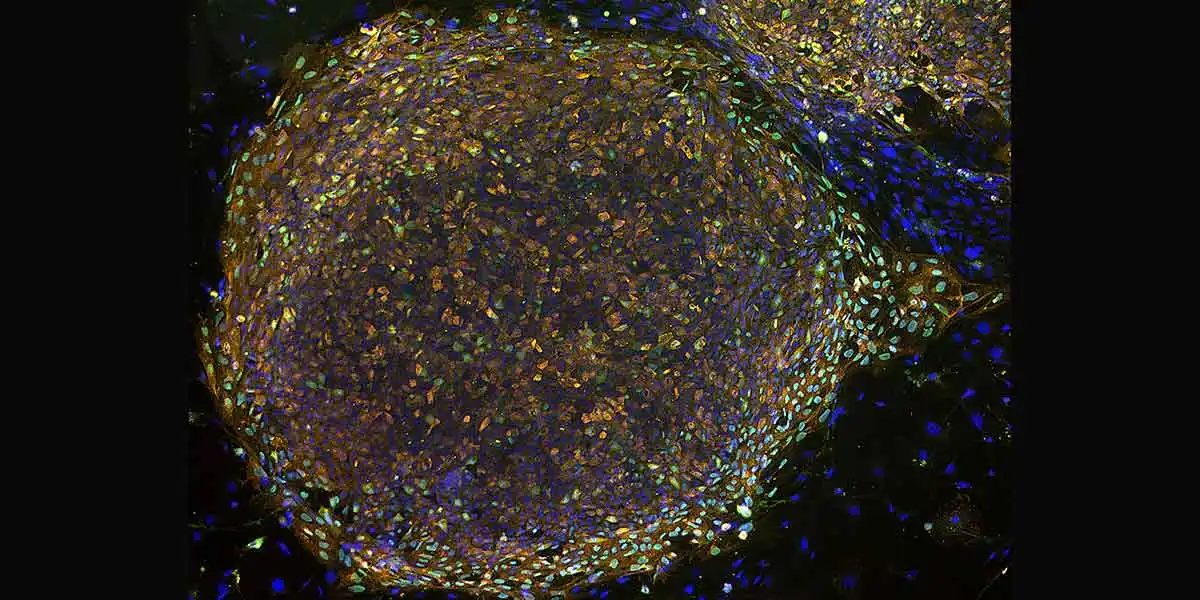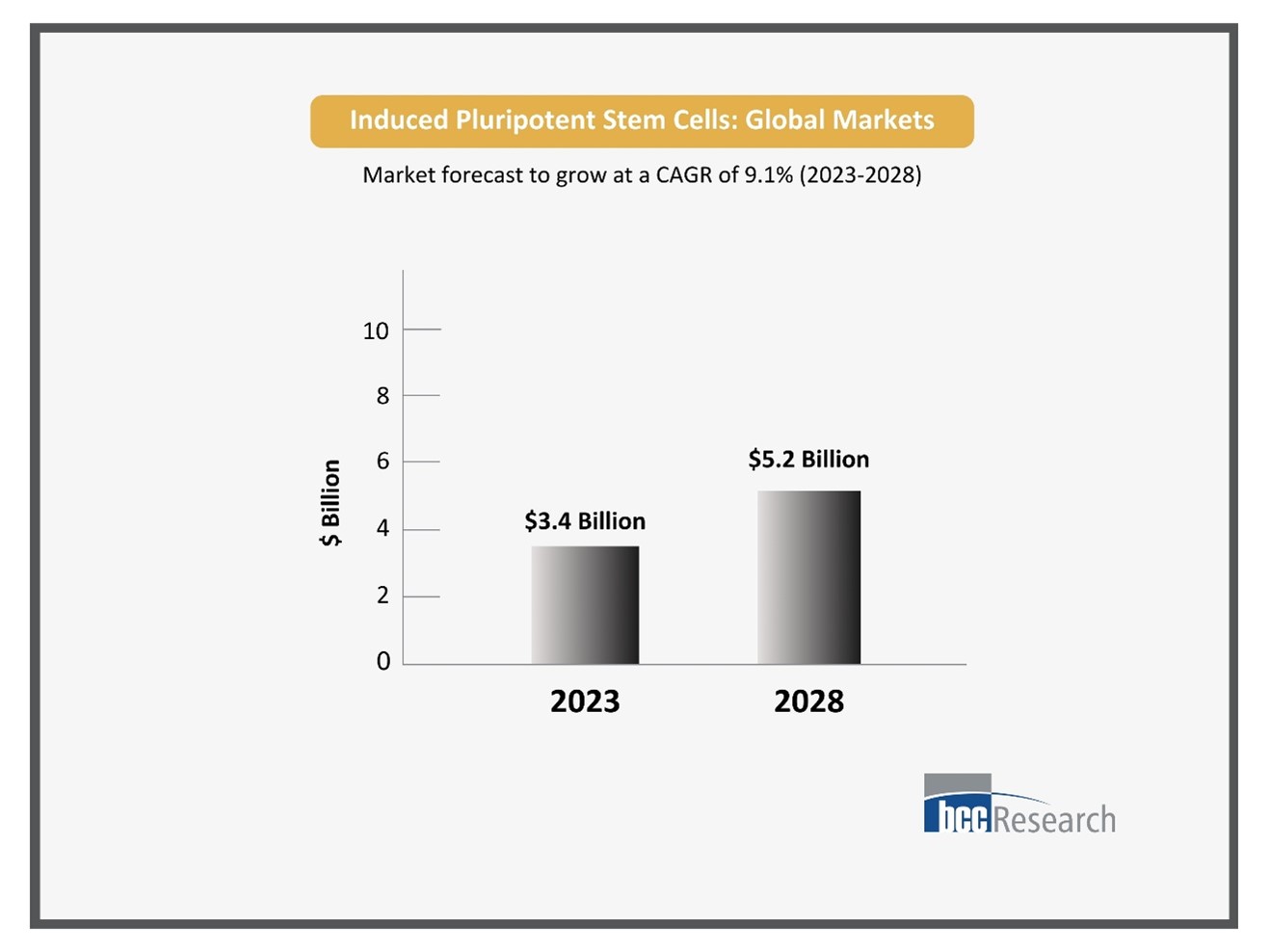
Apr 12, 2024
Blog Life Sciences Unveiling the Potential: Induced Pluripotent Stem Cells in Global Markets
An important turning point in the development of regenerative medicine is marked by the release of Induced Pluripotent Stem Cells: Global Markets. Originating from adult somatic cells, these cells exhibit an extraordinary capacity to differentiate into diverse cell types, hence offering great potential for the purposes of disease modeling, drug discovery, and customized therapy. Due to significant funding and expanding research endeavors, the induced pluripotent stem cell (iPSC) market is growing quickly.
The increasing frequency of chronic diseases and the development of cellular reprogramming techniques are driving the robust expansion of the global market for induced pluripotent stem cells. Important stakeholders are actively participating in joint ventures with the goal of utilizing iPSCs' therapeutic potential in a variety of fields, such as oncology, cardiology, and neurology. Further propelling the market's growth are encouraging regulatory frameworks and raising public awareness of the revolutionary potential of iPSC-based treatments. The market is positioned for sustainable expansion as research reveals the therapeutic adaptability of iPSCs. This will encourage innovation and drive the development of novel treatment modalities to address unmet medical needs. According to BCC Research, the global market for induced pluripotent stem cells (iPSCs) is expected to grow from $3.4 billion in 2023 and forecast to reach $5.2 billion by the end of 2028, at a compound annual growth rate (CAGR) of 9.1% from 2023 through 2028.

The global market for induced pluripotent stem cells (iPSCs) is expected to grow from $3.4 billion in 2023 and forecast to reach $5.2 billion by the end of 2028, at a compound annual growth rate (CAGR) of 9.1% from 2023 through 2028.
Technological Advancements: The efficiency and safety of iPSC creation and differentiation have been greatly improved by ongoing developments in cellular reprogramming methods, genome editing tools (such CRISPR-Cas9), and differentiation regimens. The potential uses of iPSCs in disease modeling, drug discovery, and regenerative medicine are increasing as a result of these technological advancements, which also speed up research and development activities.
Increasing Investments in Research and Development: Innovation and the growth of the iPSC market are driven by the increasing governmental and private sector investments in iPSC research and development. Funding enables the creation of infrastructure, clinical trials, and fundamental research, facilitating the transfer of iPSC-based treatments from bench to bedside.
Rising Prevalence of Chronic Diseases: The growing number of people suffering from chronic illnesses like diabetes, neurological diseases, and cardiovascular ailments highlights the critical need for innovative treatment approaches. There is a growing market for iPSC-based goods and services since they present a potential method for drug screening, disease modeling, and customized regenerative treatments.
Strategic Collaborations and Partnerships: Interactions amongst academic institutions, biotechnology corporations, pharmaceutical companies, and regulatory agencies promote resource sharing, knowledge exchange, and multidisciplinary research in the field of induced pluripotent stem cells. Collaborations speed up the creation and marketing of products based on iPSCs by facilitating access to capital, knowledge, and technology.
Supportive Regulatory Environment: Ensuring safety, efficacy, and ethical standards through favorable regulatory frameworks and guidelines for iPSC research and clinical translation propels market expansion. In addition to overcoming regulatory difficulties and uncertainties, regulatory agencies around the world are actively assessing and approving iPSC-based medicines, opening up methods for market entry and commercialization.
Together, these important factors support innovation, advance therapeutic applications, and meet unmet medical needs while expanding the global iPSC market.
Thermo Fisher Scientific: Leading supplier of tools, supplies, and services for the laboratory, Thermo Fisher Scientific offers iPSC research solutions include reprogramming kits, cell culture media, and gene editing instruments.
Fujifilm Cellular Dynamics International (CDI): A division of Fujifilm Corporation, Fujifilm CDI is focused on manufacturing and marketing human iPSC-derived cells for use in cell therapy, toxicity testing, and drug development.
Lonza Group: The multinational Lonza Group provides goods and services to the biotechnology, pharmaceutical, and healthcare sectors. Growth factors, reprogramming technology, and cell culture media are among the goods connected to iPSCs that Lonza offers.
Takara Bio: Takara Bio is a biotechnology business well-known for its proficiency in molecular biology, genomics, and cell engineering. The business provides iPSC-related goods and services, such as tools for genome editing, differentiation reagents, and reprogramming kits.
STEMCELL Technologies: A biotechnology firm based in Canada, STEMCELL Technologies specializes in the creation and marketing of instruments, reagents, and cell culture media for stem cell research. A selection of products for iPSC cultivation, upkeep, and differentiation are available from STEMCELL Technologies.
These organizations are vital to the advancement of iPSC technologies for regenerative medicine, drug development, and disease modeling. They also drive innovation, advance research, and commercialize these technologies. Please take note that since my last update, the competitive landscape might have changed, therefore it's a good idea to check the situation using up-to-date market reports or industry analysis.
In conclusion, regenerative medicine has made significant progress with the use of induced pluripotent stem cells. iPSCs, which are derived from adult somatic cells, show exceptional adaptability and hold great promise for advances in drug discovery, disease modeling, and customized treatments. The market is expanding, driven by expenditures in research and advancements in technology. The increasing incidence of chronic illnesses, favorable regulatory frameworks, and strategic partnerships all contribute to expansion. Leading companies providing cutting-edge solutions include Takara Bio, Thermo Fisher Scientific, Fujifilm CDI, Lonza Group, and STEMCELL Technologies. Together, these elements foster innovation, meet healthcare demands, and support the steady expansion of the iPSC market.
Consider becoming a member of the BCC Research library and gain access to our full catalog of market research reports in your industry. Not seeing what you are looking for? We offer custom solutions too, including our new product line: Custom Intelligence Services.
Contact us today to find out more.

Sandeep is a Senior Executive in Marketing Operations at BCC Research, proficiently serving as a graphic designer and content creative specialist. His expertise extends to AutoCAD and Revit, and he has made valuable contributions to the event industry with his design skills.
In today’s fast-paced biomedical world, researchers and pharmaceutical companies...

Radiopharmaceuticals represent a cutting-edge frontier in modern medicine, offer...

Implantable Remote Patient Monitoring (IRPM) devices are revolutionizing healthc...

We are your trusted research partner, providing actionable insights and custom consulting across life sciences, advanced materials, and technology. Allow BCC Research to nurture your smartest business decisions today, tomorrow, and beyond.
Contact UsBCC Research provides objective, unbiased measurement and assessment of market opportunities with detailed market research reports. Our experienced industry analysts assess growth opportunities, market sizing, technologies, applications, supply chains and companies with the singular goal of helping you make informed business decisions, free of noise and hype.